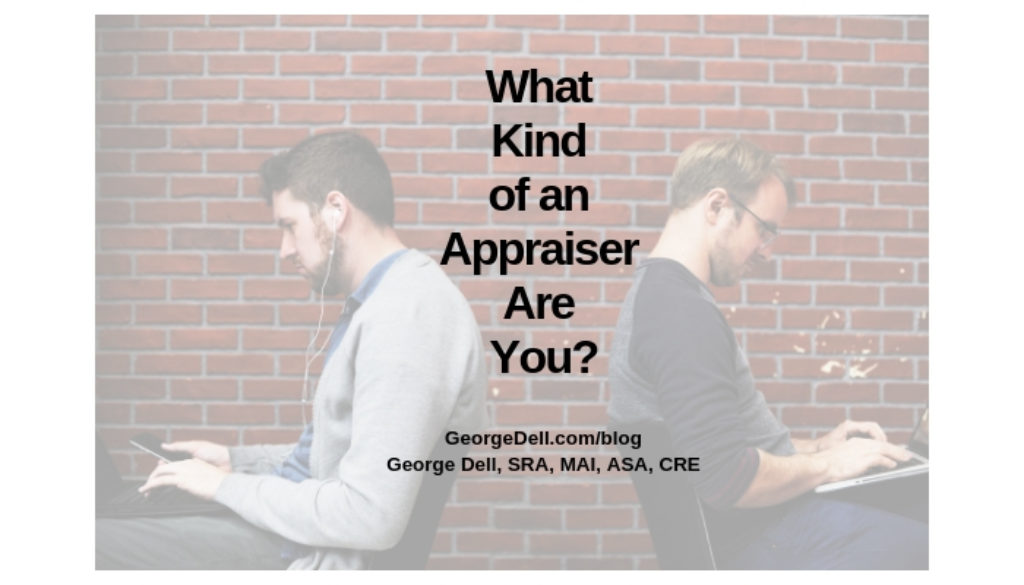What kind of appraiser are you?
Different appraisers have different attitudes! Some have a lot of experience, others a lot of education. Others emphasize the ‘art’, while others consider themselves ‘quants’.
Let’s put aside the ‘art’ versus ‘science’ discussion, where the artists say: “No computer will ever replace the appraiser”, or “No amount of education will ever replace experience”. The other side seems a bit confused. There are traditionalists. And there are the “advanced” appraisers. And there are the “vocational” appraisers, who don’t seem to care much about all of this. They just want to push through as many reports as possible. The skeptics tend to doubt some of the old theory, as well as some of the “new theory”.
I was trying to figure out how the “data science” asset analysts fit in with the possible categories. It seems like the best breakdown is these four types of appraiser: traditional, advanced, vocational, and skeptics.
The traditional professional tends to be well-educated and often holds designations. The grounding is in the ‘three approaches’, following the education established some 50 or more years ago. Advances have been in the use of the DCF (discounted cash flow), spreadsheet add-ons, and spreadsheet comparable adjustment ‘grids’, and narrative report software. Recently, there seems to be less and less analysis, and more qualitative conclusions based on qualitative differences or ordering. There may or may not be narrative discussing the various differences in elements of comparison. There is little or no awareness of data modeling or the relevant skills needed. The emphasis is on property analysis, not data analysis. Good judgment is exalted.
Advanced quantifiers are traditional professionals, but have taken the advanced courses, which emphasize inferential sample statistics (calculating t-scores, p-values, hypothesis tests, and confidence intervals). Some of the ‘advanced’ quantitative methods have helped them toward a less qualitative and less subjective, opinion-based attitude. Unfortunately, some of the quantitative methods have been misused. (As noted in The Appraisal of Real Estate,14th ed., p. 749.) Good judgment is exalted.
Vocationals tend to be residential form-filler appraisers, or ‘bottom feeder’ non-residentials. Many now work mostly if not wholly for AMCs at low fees, but working fast to make up for the lost income. The key skill is often to ‘help make the loan’, supporting the sale price with – support.
Skeptics include some of each of the above. The vocational skeptics justify and even believe they should be meeting client expectations, and doing what their peers do, as USPAP (Uniform Standards of Professional Appraisal Practice) and state law require them to do. The traditional skeptics may have doubts about things, but must find ways to justify their own practices. They may even be cynical about their own work or our institutions. But it is a continuing career for them, with no real alternatives for someone with this one skill of many years’ experiences. The advanced skeptics may be overwhelmed by the culture of groupthink. Everyone seems to go along. The best courses teach the “random sample” inferential statistics as being smart. Therefore they must go along. A few others of the advanced skeptics may be disturbed, but realize that the depth of knowledge required to challenge the establishment teachings – is overwhelming.
Skeptical skeptics are a rare breed. But growing in number. They are drawn to the fundamental simplicity of data science logic, visual representations, and using computer power, rather than fighting and making an enemy of it. They see the potential for additional value-added products. They see the potential to provide services truly needed by our collateral investors, counselors, and government agencies. They realize the fundamental principle of data science: the need for a field related expert as a critical part of the discipline. We call it Evidence Based Appraisal (EBA) ©.
